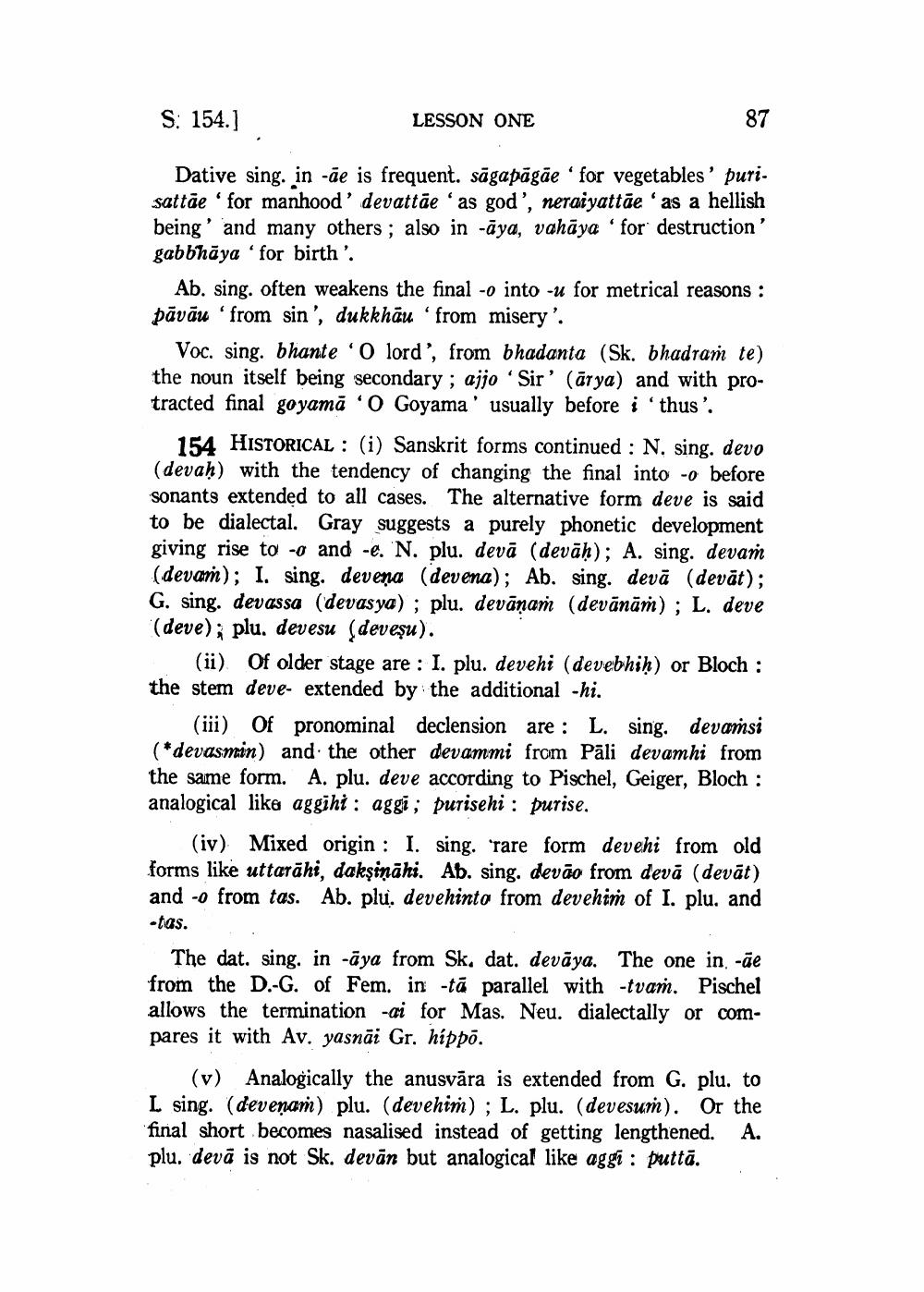________________
S: 154.]
LESSON ONE
87
Dative sing. in -ãe is frequent. sāgapāgāe 'for vegetables' purisattāe 'for manhood' devattāe 'as god', neraiyattāe as a hellish being' and many others; also in -āya, vahāya 'for destruction' gabbhāya ‘for birth'.
Ab. sing. often weakens the final -o into -u for metrical reasons : pāvāu 'from sin', dukkhâu 'from misery'.
Voc. sing. bhante 'O lord', from bhadanta (Sk. bhadram te) the noun itself being secondary ; ajjo 'Sir' (ārya) and with protracted final goyama 'O Goyama' usually before i 'thus '.
154 HISTORICAL : (i) Sanskrit forms continued : N. sing. devo (devah) with the tendency of changing the final into -o before sonants extended to all cases. The alternative form deve is said to be dialectal. Gray suggests a purely phonetic development giving rise to -0 and -e. N. plu. devā (devāḥ); A. sing. devam (devam); I. sing. devena (devena); Ab. sing. devā (devāt); G. sing. devassa (devasya) ; plu. devānam (devānām); L. deve (deve); plu. devesu (deveşu).
(ii) Of older stage are : I. plu. devehi (devebhih) or Bloch : the stem deve- extended by the additional -hi.
(iii) Of pronominal declension are: L. sing. devamsi (*devasmin) and the other devammi from Pāli devamhi from the same form. A. plu. deve according to Pischel, Geiger, Bloch : analogical liko aggihi : aggi; purisehi : purise.
(iv) Mixed origin : I. sing. 'rare form devehi from old forms like uttarāhi, dakşiņāhi. Ab. sing. devão from devā (devāt) and -o from tas. Ab. plu. devehinto from devehim of I. plu, and -tas.
The dat. sing. in -āya from Sk, dat. devāya. The one in. -ñe from the D.-G. of Fem. in -tā parallel with tvar. Pischel allows the termination -ai for Mas. Neu. dialectally or compares it with Av. yasnāi Gr. hippo.
(v) Analogically the anusvāra is extended from G. plu. to I sing. (devenam) plu. (devehim); L. plu. (devesum). Or the final short becomes nasalised instead of getting lengthened. A. plu. devā is not Sk. devān but analogical like aggi : puttā.




